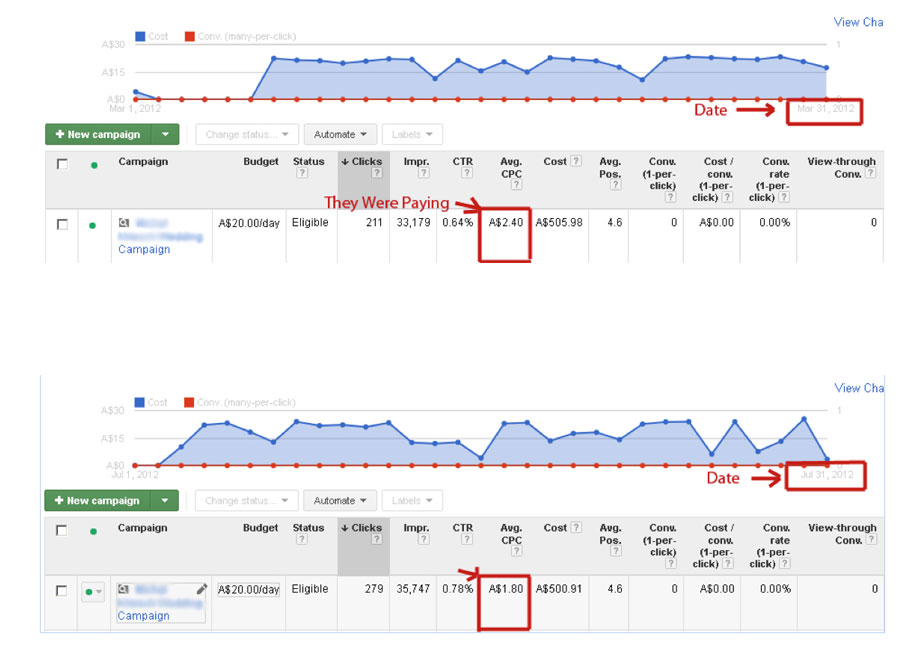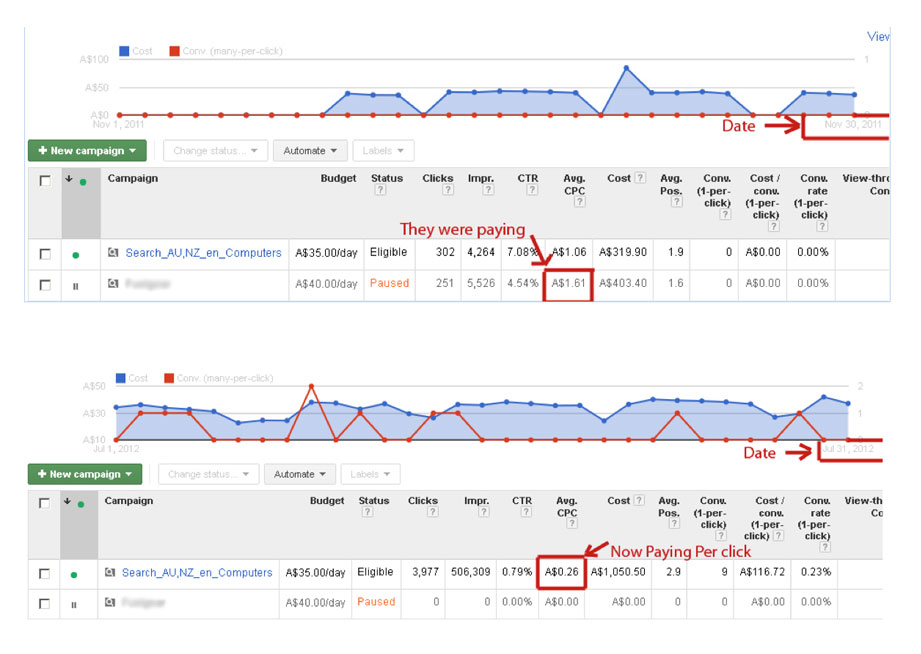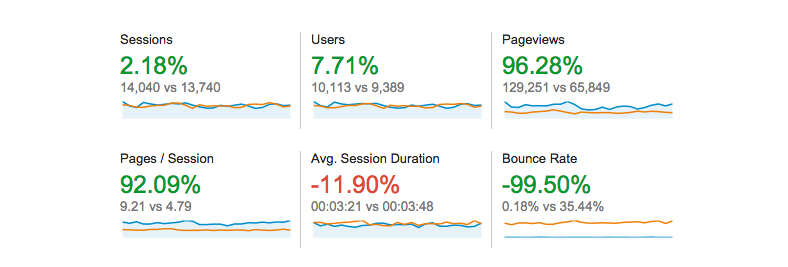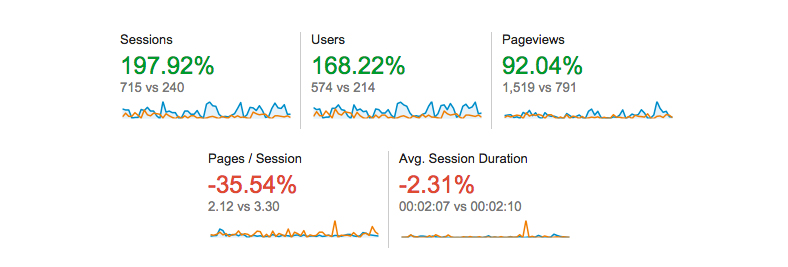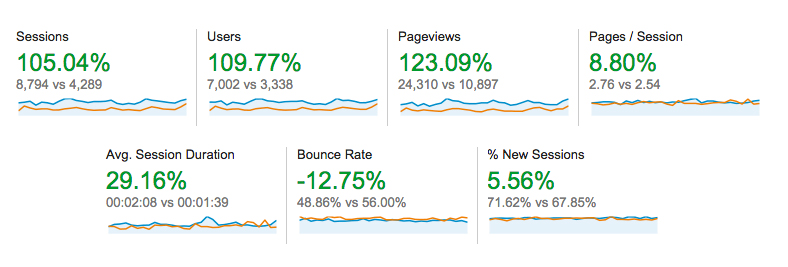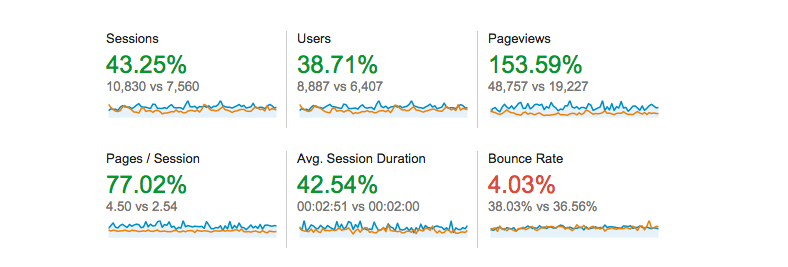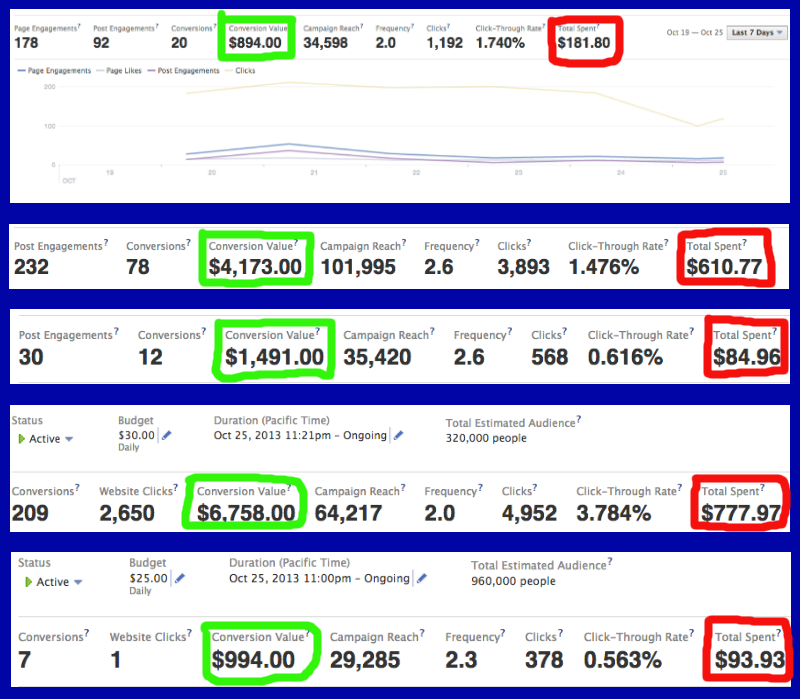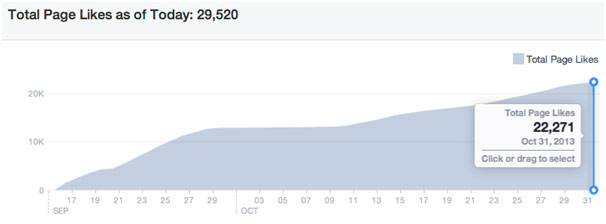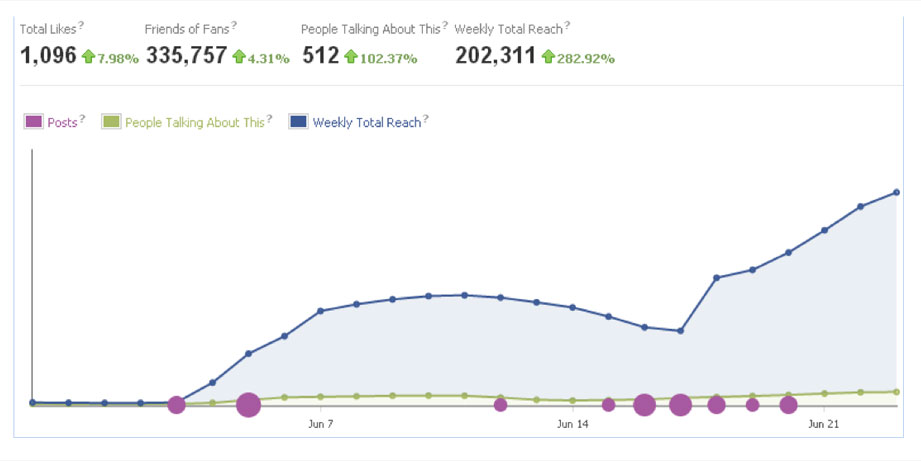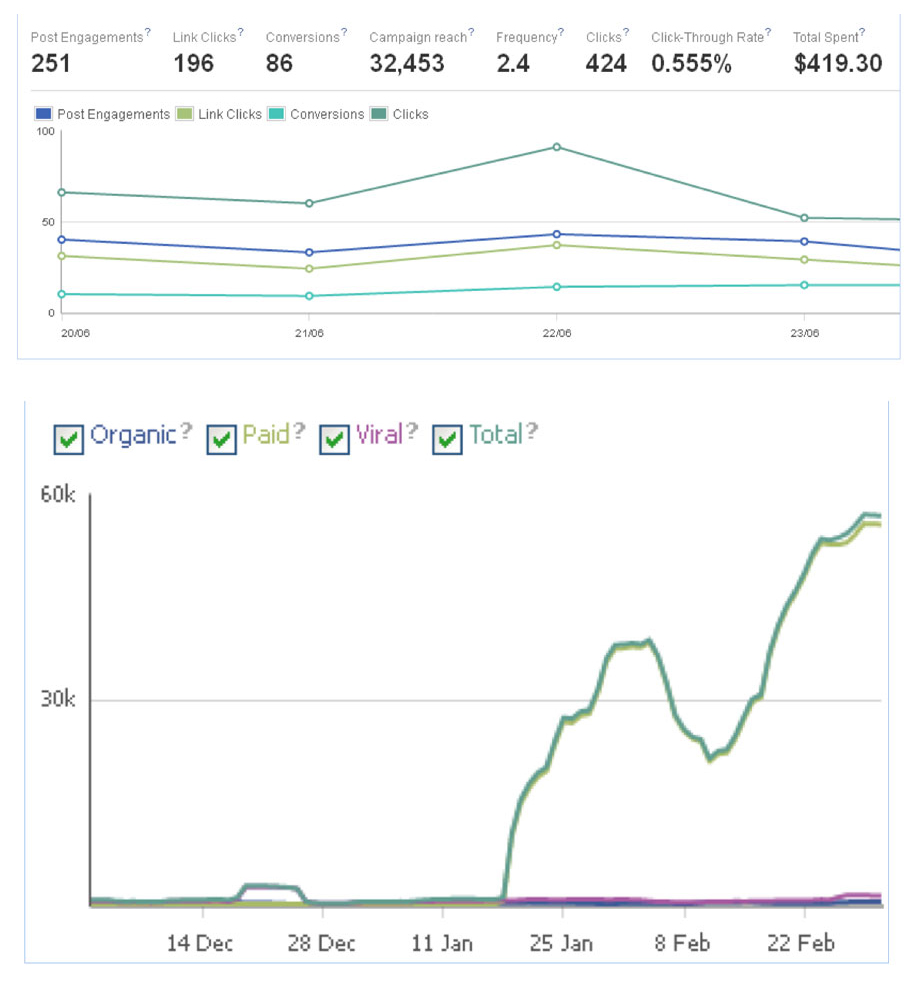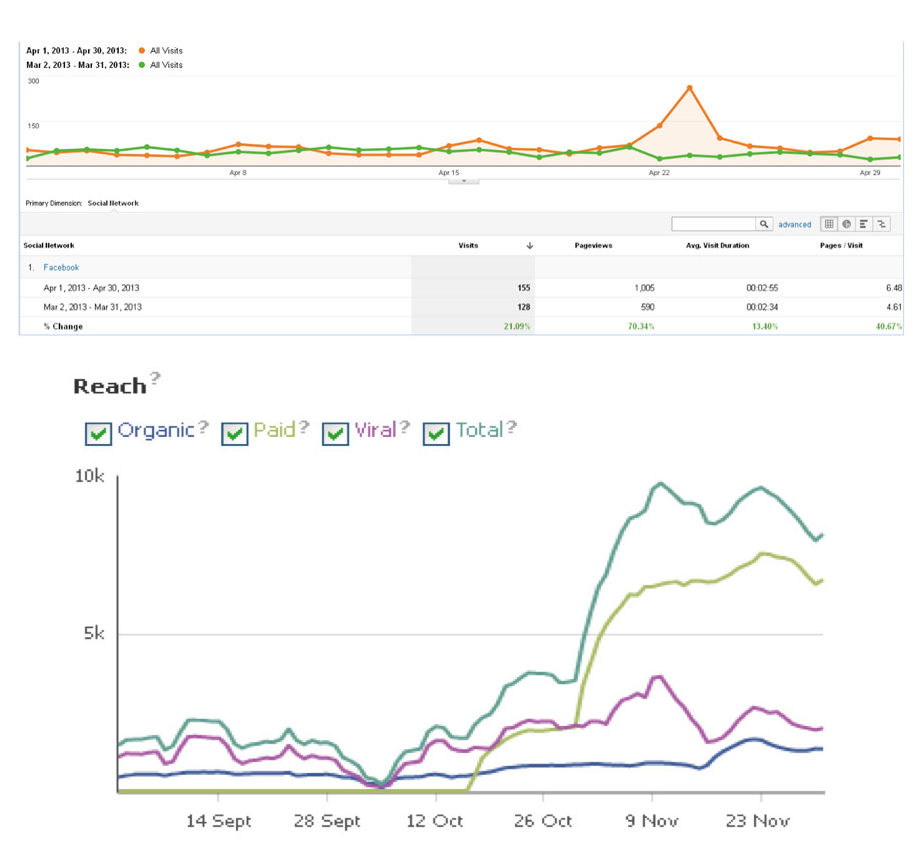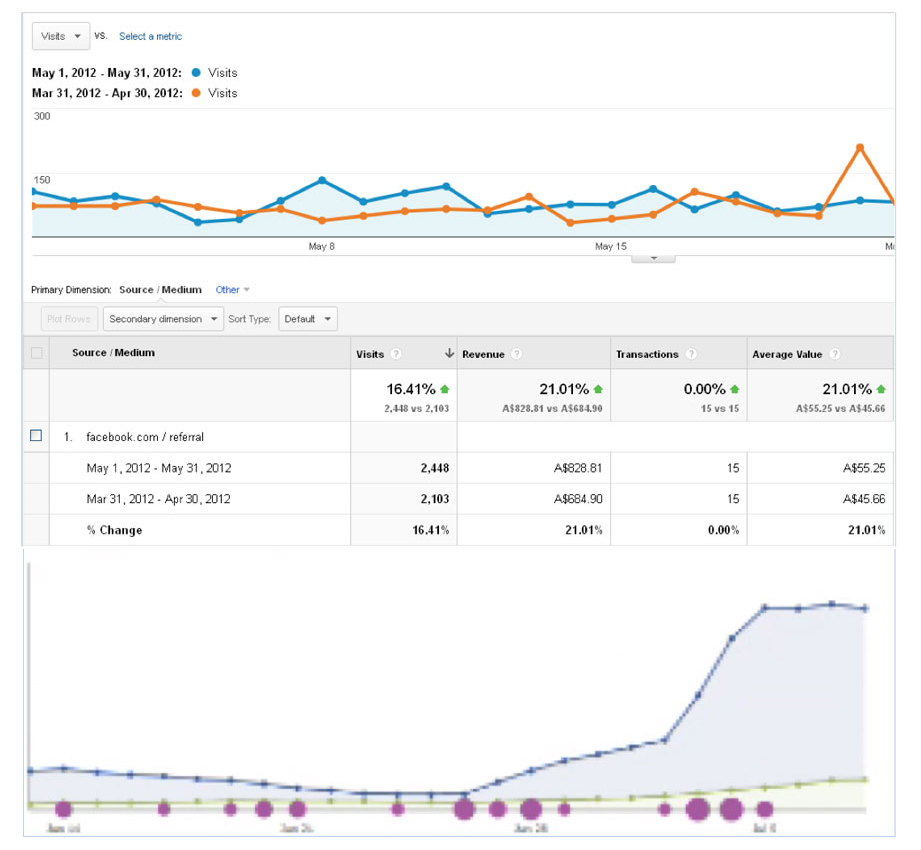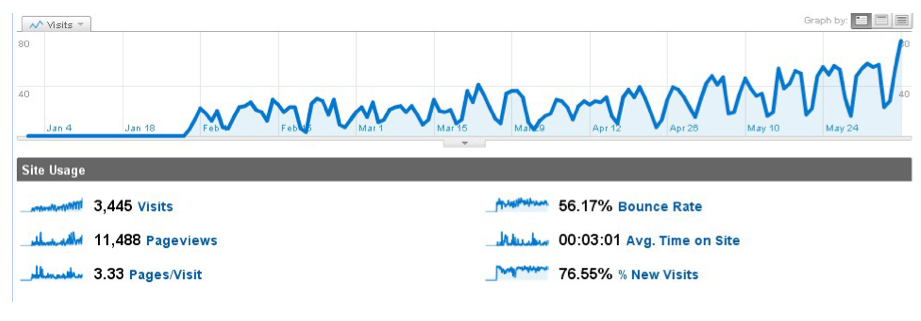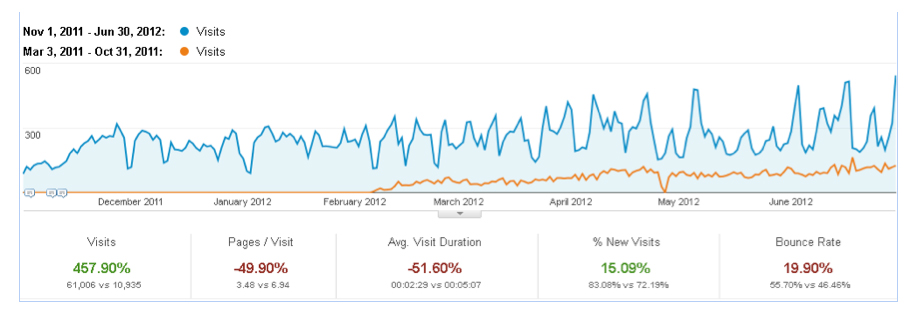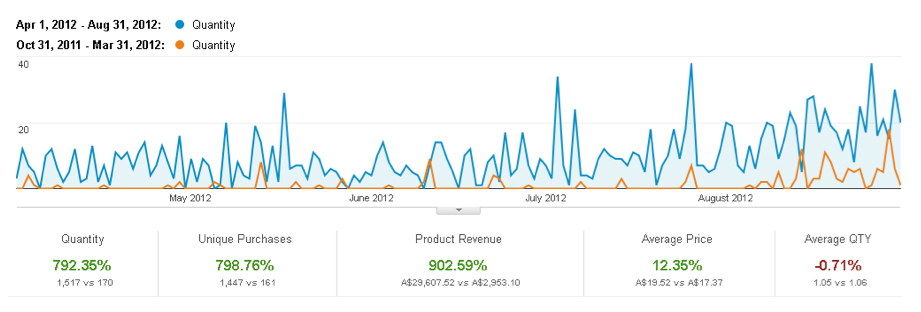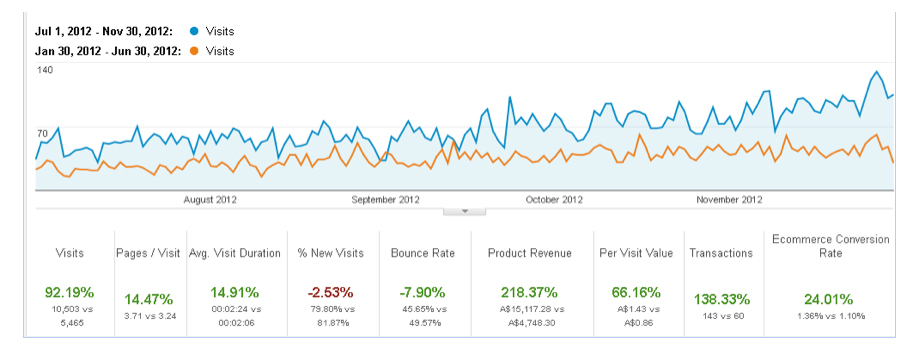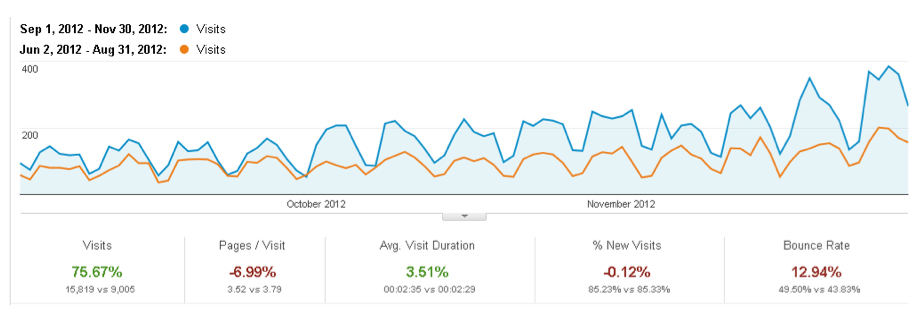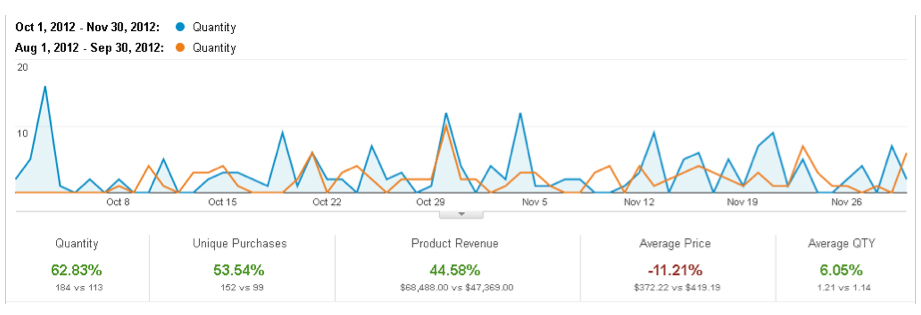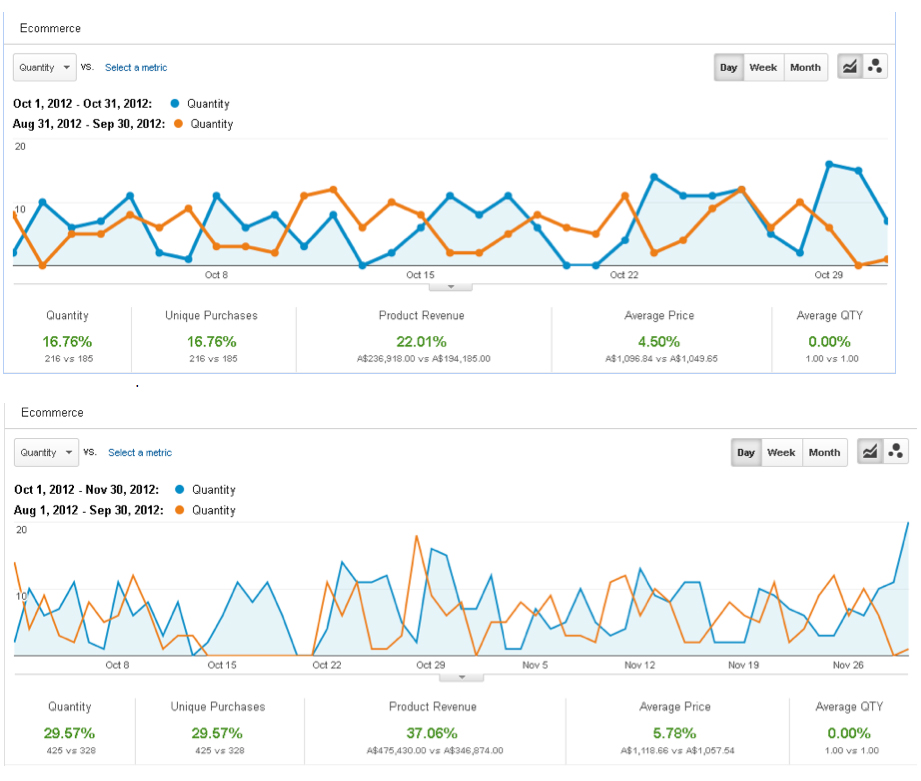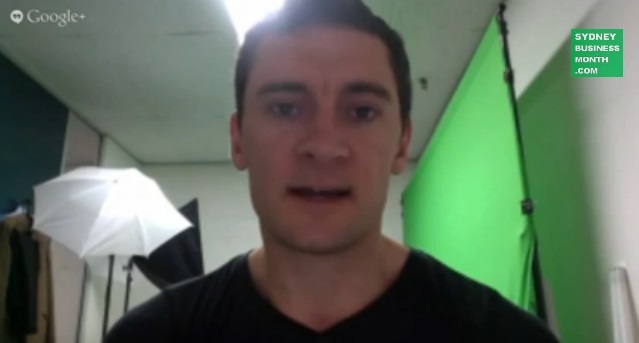
Tackling SEO with Samuel Junghenn at Sydney Business Month
Sean Grobbelaar: Welcome to Sydney Business Month streaming live. My name is Sean Grobbelaar and thank you for joining our show. In today’s show we’re talking everything about SEO and how you could use it to grow your business. Now joining me is a guy who is everything about SEO in Sydney. He has worked with a lot of mid-sized, small and big companies looking to grow their business through SEO. Samuel thank you for joining our show!
Samuel Junghenn: Thanks for having me! It’s a pleasure to be here and hopefully we can give the guys who are watching something of value that they can take away and implement in their business.
Sean: Absolutely man and I am looking forward to that! Now you are from Think Big Online Marketing and that’s your business. As an internet marketer you help and work with small, big and medium sized businesses to increase sales and position them as market leaders. A lot of this is through online lead generation by SEO, pay-per-clicks, social media, internet marketing and so forth.
Samuel before we get to the amazing content that you’ll be sharing with us today let me just ask you what actually got you into this and how is business at the moment?
Samuel: Well it’s actually quite an interesting story way back in 1998 and I just finished school and I heard about these guys making money online and thought that’s an amazing concept – you can do business online and reach people around the world or around the country from your laptop or computer.
So after about 3 or 4 months of trying to figure out what to do and where to go – how to make money online? How to drive traffic to websites and even how to google websites? All my family and friends were saying “you’re crazy and you’ll never make money out of that thing! The internet – what’s that?” It was that old story about listening too much to other people and taking that on-board and so eventually I gave up. I had other businesses.
Now after about 10 years I actually went to a business seminar and it was a multi-speaker event and we had people talking about making money online, traffic, SEO and stuff like that. I said to myself that this was the thing that I was interested in years ago. At that time I was battling through business and didn’t really enjoy what I was doing so I took up some courses and started delving into it a little bit more
I actually started off with affiliate marketing wherein you promote other people’s businesses for a profit share. SEO is one of the main things that I use to drive traffic and make money. Once I figured out how to rank websites in Google, I began getting free traffic and sending it off to other people in order to get a commission at the back of it. That was how I really got started.
The first product that I promoted was in the eulogies market believe it or not. It was a little bit different but there were a lot of people out that wanted to know how to present a eulogy so that’s kind of how I got started!
Sean: Excellent and I guess SEO now days have become a lot more prominent and important as internet marketers grow. If you really want to be found on Google and if you really want to be found by people searching online then you really need to sort all that stuff out.
Samuel: Yeah absolutely and we’ll have some very interesting stats soon to show why it’s actually so important to be there. Some people think that they want to be on the first page of Google but they don’t know the stand or the consequences of being there and not being there which is something that we’ll be getting into a little bit more in a moment.
Sean: Cool! Let’s dive into it and we have about 40 minutes left in this show to teach everyone out there how to use SEO to grow their business. Now look we’re not going to be able to cover everything – let’s be honest. It’s a huge and massive topic that businesses need to get their heads around but they often don’t have the time, space, energy and willpower to do so. So what are we going to touch on or learn about today and what do we focus on?
Samuel: So today we are going to run through the core fundamentals of SEO and give you a few things that you can take away and start implementing straight away that will help you boost your rankings and start to help you get a little bit more of that free traffic from Google, Yahoo and Bing as well. Google is the main player.
Sean: Yeah absolutely and it certainly is. I’m looking forward to this Samuel. Take it away man and I own a few websites myself and I know my rankings are not good enough but if you have a website out there then you better stay tuned and watch it because I tell you what – it is going to help you a lot. Take it away Samuel!
Samuel: Alrighty let’s get right into it! Can you see my screen now?
Sean: Absolutely! Search Engine Maximisation!
Samuel: Yup! A lot of people like to call search engine optimisation but I’d like to call it maximization because we want the maximum results from our efforts.
SEARCH ENGINE MAXIMISATION
Alright so what we are going to talk about today is the free listings down here when you go to Google and you type something into the search bar you got the listings across the top. Usually they are in yellow, pink or blue with a white shade up here and down the sides. They are all paid listings but what we are talking about today are the listings here that don’t actually cost you any money every time somebody clicks on your ad.
SOME IMPORTANT STATS ABOUT SEO
So here are a couple of stats that are important if you are in Google and if you are getting free traffic from there. There are about 18.8 billion searches per month on search engines. That is 18 billion with a “B” which is an absolutely phenomenal number of people out there searching for information about products or services that we may have as a business owner or entrepreneur.
About 96 percent of people don’t look past the first page and we’ve all seen it wherein we go and type something into Google and if we don’t find what we want, we generally don’t think past the first page. Instead what we do is we type in a different search term.
So if someone goes into Google and types in something that you should be searching for and you are not either of two things are going to happen – one is they are going to find your competitor and two is that they are going to do another search and find a different competitor. So it is really a losing situation if you’re not ranking.
One of the most alarming stats though is that about 74 percent of people will actually look you up before doing business. What that means is that if you are doing any type of advertising – radio, TV, newspaper or social media whatever it might be, if people have seen you (they could have had a phone conversation with you before or met you in a networking event), most people would look you up and see what your web presence is before they will actually decide to do business with you.
Obviously you need to appear high for your business at least if you don’t have some good reviews online and a good web presence then people are less likely to do business with you. You’ve may have put in all the hard effort to go through networking events or spent a lot of money on TV, radio advertisements or whatever it might be – it’s not going to be very effective if you don’t have a good web presence.
FROM CHAOS TO ORDER
The reason we talk about Google so much is because it has 85 to 100 percent in Australia. It depends where you get your information but it has majority of the market share. The reason search engines exist is to practically bring chaos to order. Before we had search engines we simply had a lot of files and sites on the internet which made it very hard to find exactly what we want. We had to sift through thousands of websites to try finding what we want.
The whole purpose of search engine is to serve up the most relevant content for searchers and whatever they are typing in the search bar.
RELEVANCE
So we talked about the relevance of search engines (I don’t know why this photo but I love it and I think it’s cute so I like to show it) but basically we can think about it as an ecosystem where none of these 3 can live without the other.
So we got the user – the person that types into Google in order to find a product or a service, we have you as the publisher and then the search engine. The search engine serves the results to the user when they type something in. The user then clicks on the website and if they find good information then they are going to use that search engine again. If they don’t then this link will be broken and the user will move on to another website and because they haven’t found what they wanted then they won’t use that search engine anymore.
Someone goes to Google and types in a specific search term and doesn’t find any relevant results out of it then they are not likely to go back and trust the search engine anymore.
RELEVANCE + LOVE = MONEY
It’s important that you publish good quality and relevant content about your product or service that users will like and make them trust the search engine more and come back. Search engines will reward you more by publishing great content. The reason why search engines why they want you to publish great content is because they make money every time somebody clicks on their ads.
Now as mentioned in the previous slide – if people don’t trust the search engine and aren’t coming back then obviously Google would have less people visiting it and even lesser chances of people clicking ads and making money so this is why your content needs to be relevant and useful.
THINK LIKE THE FISH – WHAT IS THE INTENTION?
Okay so let’s get a little bit into the technical stuff. The start of your SEO or marketing in general is about thinking like a fish. The best fisherman may go out and think about where all the fish are hanging out, where they eat and what they want to eat. They then set themselves up for success by using the right tackle and the right bait. They go to the right place at the right time to catch the fish.
THE BUYING CYCLE
Thinking like a fish can basically be broken down into 4 steps of the buying cycle. This is where people are going to be at when they go to Google and perform a search.
1. NOT AWARE AND NOT SEARCHING
The first one is not really important and I just have it in there for awareness so they are not aware and they are not searching for your product or service. Maybe you have a brand new gizmo that you just created or launched so people are not going to be searching for it on Google. Hence you have to do some type of awareness marketing by TV or radio as a part of interruption-based marketing where it’s very different from search and will be much better for you at this stage.
2. HEARD OF IT
Level two is that they might have heard of it. They might have been walking down the street when they heard somebody talking about holden or a car and they go to Google and type in holden or cars or what is holden? These people have no real commercial intent behind their search and there’s nothing there that would imply that they want to do business with you and that they want to spend money. Now this particular level (level two) is not worth much to us and we don’t want to target really broad keywords.
3. AWARE OF IT
Level three is that they are aware of it and it could go either way. They could be on the fence and are certainly worth a lot more. They could be searching for stuff like “Green Commodore” which is a lot more specific than holden but still they could be searching for stuff like green commodore paint or green commodore that they saw in a magazine in the news section or they could be looking to purchase commodore but it’s still unclear exactly what they are searching for.
4. THEY WANT IT NOW
Level four is they want it now! They have their credit card out and are sitting there ready to hand money to whoever provides exactly what they want. So it’s clear that someone who goes to Google and types in “green commodore 99 for sale” has buying intention and is looking to do business with someone. These are the keywords that we want to target. So in thinking like a fish we want to put ourselves in their shoes and imagine what we would be typing in if we want to search for our product or service.
GOOGLE KEYWORD PLANNER
To help us with our research, Google has something called the Google Keyword Planner. Simply go into Google and type it in to find it. It’s a free tool that you can use to come up with ideas for keywords for your products or services that you can use in your marketing. Simply type your keyword on the top and it will give you suggestions. Other tools that you can use to help you in your keyword research and generate some ideas include SEMRush.com, Marketing Samurai and Keyword Spy.com
COMMON SENSE – JUST BECAUSE YOU CAN DOESN’T MEAN YOU SHOULD
A lot of people using the Google Keyword Planner often go for the keywords with the most value. The Google Keyword Planner will tell you how many people are searching for each word per month. You can sort the keywords according to country or location as well as a bunch of other filters. Now we don’t have time to go through all of them today but don’t be too greedy and simply think about the keywords with the most value.
Remember the 4 levels of the buying cycle? Usually the ones in level two have a lot more volume than the ones in level four which are very specific so you’ll have more chances of doing business with those people at a lesser volume.
RELEVANCE
Now in SEO we have a lot of people say that “content is king”. Once again I just found this photo that I would like to share and with relevance to this presentation – has absolutely no relevance at all.
So how do we create content? This is where most of our students get stuck with the habit of thinking that they can simply go out there and create content and be a market leader as well as provide value to the community but with no ideas for content.
It’s actually really simple and you can get ideas from stuff such as frequently asked questions – as business owners, marketing managers and entrepreneurs, whatever your position is, you get asked a lot of questions every day. People type these questions into Google every day as well. A good example of a frequently asked question for us might be – is SEO worth it? We can create an article with that same title or something similar to it. Once you publish that, you will then have hundreds of visitors per month for that phrase because it’s a question that people are typing into Google.
Another source for content ideas are “Should Ask Questions” which is something that not too many people think about. We know a lot about our business, our market and our products or services but our target market usually doesn’t so you can help them a lot while positioning yourself as an authority by publishing should ask questions. You can do different types of content by simply listing them down for unlimited content.
What you should do with your should ask questions is build a high level of trust with people who haven’t thought of asking such questions. You might be demystifying some truths in the market and opening their eyes to things that they could potentially be burned by. Maybe some of your competitors don’t tell people about these things enabling you to create a big level of trust and rapport.
You can also look at the biggest problems for content ideas – creating content around their biggest problems and helping them solve it. Even if you are providing a service you can still create this type of content. What are their dreams? What do they aspire to and what’s the ultimate outcome in doing business with you?
“How to” type of content are also great sources of ideas. Now some people might say that if you teach your customers how to do it then they are not going to do business with you. Now let’s say you are offering an SEO service and you are teaching your customers how to do it.
What I’ve discovered is that there are generally two types of people in the market – the DIY and the done for you. There’s a big group of people who wants to have things done for them and there’s also a big group of people who wants to do things on their own.
The DIY people usually checks into the done it for you content but those who want things done for them rarely checks into DIY pages. Hence you practically never have customers that come up to you saying that they want you to manage their SEO only to say that they want to manage it themselves later. A lot of the time, we teach people how to do it and they might find it too difficult or they might simply not have the time or whatever it might be then they will go to the done for you side of things.
Don’t be scared to publish how to content and add value to the market while positioning yourself as an authority which will bring you customers regardless of whether you are a done for you or a DIY business.
Rich and Unique Content
Okay so let’s speed through this because we don’t have a lot of time. When it comes to content we need to make it rich and unique. Unique is very important – we don’t have time to go through that in detail but just think that your content needs to be unique which means don’t copy other people.
In terms of types of content you can use text, pdf or images to support your text. Images are big on social media at the moment.
You can have infographics wherein you use images to tell a story and they are very popular for the last 2 years now and people love them – they share them which helps with SEO and brings more traffic to your site for free. You can also do power point presentations and put it up online on your site or thru sharing sites like Slide Share and you can get free traffic back to your website from those as well.
You can also do audio content specially those struggling with creating content. It’s as simple as picking up your phone, hitting record and sharing something of value by recording it and uploading it online. It can be that simple so there’s really no excuse for not creating content!
You can also use videos for your content or rip the audio out of it and use it as content by uploading it to itunes or publishing it on your website. It’s another way to get content out there and duplicate it in another form.
OPTIMISATION
With regards to search engine optimization, we’ve broken it down to 8 easy steps:
- Heading once
- Body
- First and last
- Bullets
- Underline, bold, italic
- Internal linking
- Images to support
- Ask for comments
A lot of people say that you need to have as many keywords as you can on your web page and stuff like that and yes it is important to have those keywords in there but the most important thing is that you write for humans rather than for search engines. Google keeps getting smarter every single day and they know what real genuine content looks like. Back in the day, you can do SEO simply by packing as many keywords as you can on your content.
If you have a cat throwing business then you can simply litter your content with keywords like cat throwing or how to throw a cat and regardless of whether it makes sense or not it will rank. That I certainly no longer the case now days and Google now a lot better at looking for content with proper structure that is grammatically correct. Even spelling is a factor and your content can rank differently depending on whether you use US or Australian spelling.
Let’s go over the SEO steps mentioned above very quickly:
- Use the keyword in the heading once. Like the example mentioned before in the article “Is SEO worth the Money?” That was our title and the keyword that we wanted to rank for.
- You need to have your keyword on the body – the main part of the text.
- If you can, have your keywords on the first and last sentence of your article body. Think of these things afterwards and focus on creating amazing content and fit your keywords afterwards where they make the most sense.
- Use bullet points and put your keywords in there
- Format your keywords with underline, bold and italic – you don’t have to do every single one of them but this is how genuine content looks like and what search engines are generally looking for.
- Internal linking – link your webpages. Let’s say you have a post about “Is SEO worth the Money?” you can link it with other relevant posts on your site perhaps one that is about creating content for SEO. Doing so will help visitors become more engaged and level of engagement is one factor that search engines use to judge whether your page is good or not. It’s one thing to rank for search engines and it’s another thing to have people come into your site and spend a great deal of time there reading, scrolling and clicking on your site’s offerings which will validate site rankings
- Use images to support your story
- Ask for comments – if you are on your blog, do ask for comments. If you got people commenting on your site that is free content that other people are creating for you with no work on your part not to mention that it is an indicator of site engagement and search engines will certainly reward you for that.
RELATED KEYWORDS
You want to use related keywords in your content. In our example before about Green Commodore, related keywords that you can use in your webpage includes holden, cars, tires, motor and other things that are related to that keyword.
Google looks for content that have relevance. If you have a whole page that talks about something totally different like cooking and put in keywords like green commodore in order to rank for it, it’s not going to work. Google looks for keywords that support the main keyword that you are trying to rank for.
BE CONSISTENT
One of the important things about content creation is that it needs to be consistent. If you came up with 50 articles after this presentation because you it got you so amped up and excited making you ready to publish content on your website and become an authority that will drive you loads of free traffic – you are better off spreading those articles out over the next 6 months.
Google is going to look at your website and how regularly you update it. If you publish all 50 articles today and nothing for the next 6 months, it’ll make the search engine think that you are not updating your website and whatever information you have in there is outdated. If you are publishing something once a week, a couple of times a week or even daily, Google will see that you must be maintaining your website because you are publishing content regularly on a consistent basis.
SOCIAL MEDIA
Social media has been affecting SEO in a big way and it has been for quite some time now. It has become immensely important in recent years so web marketers need to be on social media and integrating them with their website.
The easiest way to do that is to have social media sharing buttons on your website. You’ve probably seen these buttons yourself while looking at a blog or a webpage that say things like “Share this in LinkedIn”, “Tweet this on Twitter”, “Like” or “Share it on Facebook”. All these things send a signal to Google that your content is good because people are sharing it on these other websites.
It’s such an easy thing to do – you can use webmaster to put those buttons up or make use of plugins for WP users.
GOOGLE+
Google+ is affecting search engine results in a huge way. Now not too many people use Google+ but it’s actually catching up with Facebook. More importantly when it comes to SEO, both Google and Facebook knows that “likes attract likes”. If you are connected to somebody on Google plus and you clicked “+1” on a webpage, that person will most likely see the same webpage if they search for keywords in the future that are related to that webpage.
Indeed It can have that much impact on search results hence you should be using Google+ and connecting with people in your industry as well as sharing content on there and implementing author tags. It’s a fairly simple process and Google webmaster ought to show you exactly how to do it.
PROMOTE IT!
Once you get your content out there, you need to promote it on social media. Don’t just leave it to other people to promote it for you. As soon as you publish a new blog post jump in to social media networks like Facebook and share it, post it on your LinkedIn profile, post it in Google+ or your Youtube channel. What you are doing is building links to your site which helps bring in traffic to your site as well.
If you are a member of forums you can post links back to your website or blog on the footer or signature of your forum profile. Every time you make a comment or a post on the forum, you’ll be creating links back to your website which will help boost your rankings.
You can also go out there and post comments on other people’s blogs. Add value to the community so that when people see you out there and they notice you, they are going to keep coming back to your website. Commenting on blogs won’t cost you anything other than time and enable you to put links on other people’s website for people to come through and engage with your site which will ultimately help your rankings.
Ads are also an option in promoting your website especially Facebook ads which are very cheap and particularly useful for promoting content and driving cheap traffic back to your site.
LINK BUILDING
Links essentially connect one webpage to another. Search engines use them as a casting vote for determining search engine rankings. The more quality votes you have, the better your rankings. It’s similar to an election wherein whoever comes out on top with the most votes wins.
WHERE TO BUILD LINKS
Building quality and relevant links is something that I really want to drill in. It used to be that you can build links to website practically from anywhere. You can build links for a site about Green Commodore on a cat throwing or dog grooming website and it will still rank.
Now this is certainly no longer the case now days and Google has become a lot smarter at identifying genuine links from those who are simply trying to manipulate search engine rankings. If you have a site about Green Commodore then you will need to build links from relevant websites that are about cars, tires, motors and other sites related to Green Commodore.
BUSINESS DIRECTORIES
Here is a list of directories that you can build links from:
Free business directories
- DMOZ
- Hotfrog
- Truelocal
Paid business directories
- Business.com.au
- Dir.Yahoo.com
- BOTW.org
You can submit your website to these directories and get a link back to your site which will help boost your rankings. These are generally business directories but if you have a blog, you can still post your links in there. DMOZ is free but it takes awhile to get approved. Of course free is not always better – paid directories are more powerful and not all links are created equal.
Some links will give you more power and a lot more juice to your site than some of the free ones will. Take that into consideration when attempting to save money when it might actually be costing you more. If you have a link in paid directories then it will greatly help boost your rankings more so compared to links that you might have from free directories like Hotfrog or Truelocal. Of course links from free directories will still help but the paid ones tend to produce better results.
ARTICLE SUBMISSIONS
You can create articles and submit them to article websites like Ezine Articles and Article Dashboard. Put a link back to your website on the articles you’ve submitted which search engines will read as a vote of confidence from these sites. You can look into these websites for specific methods on how to create anchor text, place links and all that other stuff which can vary from one article directory to another.
FORUMS
Build links on forums via signature links which will appear every time you make a post or a comment on the forum. Another great way to build links is to reference blog posts – check out the popular questions people are asking on the forum and then create a blog post about it. You can then go back to that forum and drop your link in there directing users to go to your content for the answer to their questions.
You’ll be adding value to the forum community and at the same time, you’ll get more traffic back to your site – everybody wins!
When creating links remember that more is not more – there are places like fiver.com and others wherein mass links which don’t really work anymore and can get your site penalized by search engines which can be very hard to remove.
Be wary about offers like “5,000 links for $5” and all that other stuff by using automated software to build links – don’t do it and you’ll only regret it especially if you have a website that you’ve worked so hard to build and keep only to end up shooting yourself on the foot. Even worse is that one you get flagged by Google for these activities, you’ll be on Google’s radar for the foreseeable future.
If you choose to hire a company to do SEO for you don’t hire based on price. It’s the easiest mistake that people can make and I’m not saying that because we want them to hire us as their SEO Company – genuinely want people to make that decision based on results and not on price.
You can look for a Bravia TV on the market and buy one from sellers offering the lowest price and that’s fine – the end product is practically the same. You cannot simply say the same thing about SEO and companies can have different case studies and methodologies which yield different results.
The difference in knowledge and skills in SEO is like chalk and cheese hence one really ought to look into the strategies and quality of their work as opposed to simply looking at cost and focus on initially saving as much money as possible only to end up with poor results which can ultimately cost you a lot more. It’s not to say that good SEO companies are always the more expensive ones but rather don’t look at the price first.
I’ve actually written a report about the subject and it covers everything you need to know about hiring an SEO company. You can download it if you want at thinkbigonline.com/free-seo-report.
INTERNAL LINKS
- Think of the users first
- Mix up the text
- Don’t overdo it
Now as mentioned earlier, links count as votes from other websites but where we have the most power are the links that are in our own site. Every page on your site has a certain amount of power in it and we obviously have complete control over the pages on our site. Hence we can change the links on our site to yield the best SEO benefit.
Let’s say we have a page about dog grooming and another one about removing fleas on dogs. As long as they are relevant to one another, we can link these pages together. Use keywords to link webpages on your site but always think about your users first – is it logical to link those pages together in the first place? If it’s not then people are not likely to click on it and Google will take that as a poor user experience and while you may rank well for awhile but inevitably those rankings are going to drop as Google sees the way users are interacting with your site.
Mix up your anchor text – we won’t go into the matter too extensively (anchor text importance and percentage) but you need to mix it up and use variations of your keywords. Instead of using the anchor text “how to remove fleas from dogs” and using it as anchor text for your links all the time, you can mix it up by using related terms like “flea removal for dogs” or “how to kill fleas”. Link back to pages on your site using these terms to boost page rankings.
Don’t overdo it – if you have a page with 300 links pointing to other pages on your site, it’s going to provide an extremely bad user experience and we don’t need to tell you that. Again think of your user’s first and only put links where it actually makes sense.
So that’s about it! SEO can be very rewarding and one can make a lot of money out of it not just by providing it as a service but ranking your own websites or leasing it to others. Affiliate marketing and link generation are all valuable skills and there are not too many people out there that can do it well.
SEARCHFASTSTART.COM
If you want to learn more about it, you can check out a course that I just released called Search Fast Start and goes into everything that we covered here with more depth. It’s basically the A to Z of SEO and everything you need to know about search engine optimisation. If you are interested then do check it out.
Let’s switch back to Sean now for any questions?
Sean: Absolutely man and I think you covered a lot of content so thank you very much for that! I think a lot of people are getting confused these days about black hat SEO and white hat SEO. What is right and what is wrong? I guess a good start for these people is to download that book from your website and at least discover what they need to be asking their experts out there in terms of what they need to do and how to get started with their websites.
Samuel: Yeah absolutely and if you are looking to hire someone to do SEO for you then check out that book first. It’s really more of a “How to” guide but going through it should provide you with valuable insights about how the SEO industry works and how SEO companies approach clients when trying to get them on-board. There are some people out there that don’t do the right thing for their customers and unfortunately giving the industry a bad name. The guide is meant to open the kimono on the industry and help people.
Sean: What is that site again? Where do people go if they want to download that eBook?
Samuel: To download the eBook, simply go to thinkbigonline.com/free-seo-report or simply go to thinkbigonline.com and you’ll see the report there somewhere since it’s prominently displayed on the site.
Sean: I see and it certainly is a good read and something that people ought to do. Look if somebody wants to get in touch with you or talk to you about doing SEO for them, where do they go and how do they contact you?
Samuel: Again simply go to thinkbigonline.com or send me an email at info@thinkbigonline.com,au then we can have a chat and see how we can help.
Sean: Very good! I guess these days getting ranked high on Google is very important. I seldom go to page 2 on Google and I’m sure it’s the same for many people.
Samuel: Yeah and it’s all about convenience and time saving these days. Most people are just too busy and don’t have the time to be clicking through the second page. People just want what is easy!
Sean: Samuel thank you so much for being a part of Sydney Business Month once again. You’ve been an absolute star at helping business become a lot more effective online at being found and being relevant. Your suggestions at creating content that is relevant as well as linking it all correctly so that people may find, share and communicate with it are all invaluable. One thing that I took away from it was that being online is a community – we need to be online, talk online or communicate online just as we do in an offline business.
Samuel: Yeah absolutely 100 percent! It’s something that I noticed awhile back is that these businesses that are really good at getting exponential results are those that realize that it’s not a one on one thing anymore with Clients. It’s a circular process of building a community around your business and the internet makes it easy for us to do that these days.
Sean: It sure does! Well thank you so much for your time and that is the end of our show guys. Samuel I really appreciate your involvement and we encourage you guys to hop on to his site and download the eBook and try out his products. Samuel is an easy-going guy and someone who enjoys a good conversation if you are out there and wanting to improve your SEO. Samuel, again thank you very much mate and I look forward to having you again as a part of Sydney Business Month.
Samuel: Thanks for having me!
Sean: Cool! Well that was another episode of Sydney Business Month and it’s been awesome having you as part of the show and we look forward to seeing more of you in our upcoming shows. Head to sydneybusinessmonth.com and you’ll find all of our shows there or the other 120 shows that we are a part of! Samuel is just one of many experts that we have here at Sydney Business Month. This is Sean Grobbelaar bidding you goodbye and see you in our next show!
Samuel: bye!




